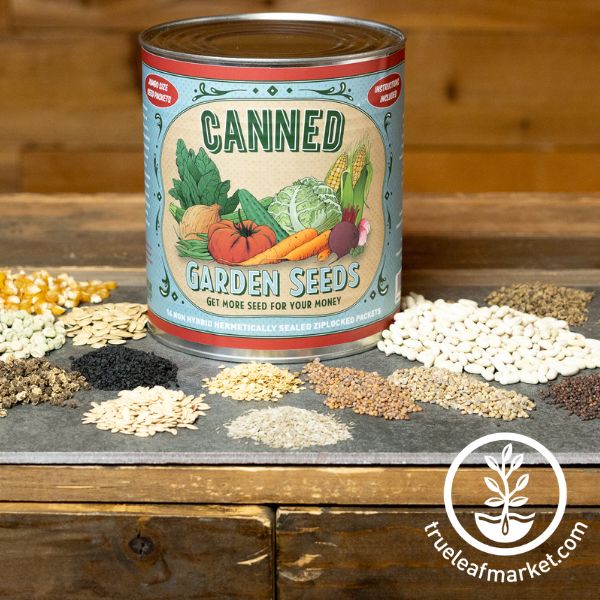Cultivating Health: How Gardening Improves Your Well-Being
Written by Chelsea Hafer
Gardening has long been celebrated as a fulfilling hobby, but did you know that it goes beyond being a pastime and can significantly contribute to improving and lengthening your life? In this article, we'll explore the wealth of research-backed evidence supporting the health benefits of gardening, delving into specific lifestyle factors that make it a powerful tool for enhancing overall well-being.
Gardening Reduces Stress and Lowers Cortisol Levels
One of the remarkable benefits of gardening is its ability to reduce stress levels. A study conducted by the National Institute of Health found that gardening can lead to a significant decrease in cortisol, the stress hormone, compared to engaging in other leisure activities. The study found that gardening played a crucial role in fostering a connection to nature and facilitating stress release. As individuals faced the challenges of the pandemic, the act of interacting with plants became a coping mechanism.

The synergy between nature connection and outdoor physical activity was highly significant in the surveyed sample, indicating that gardeners were using their outdoor spaces to cope with the acute social disruption caused by the pandemic. The rhythmic nature of gardening tasks, such as weeding, planting, and harvesting, promotes relaxation and contributes to an overall sense of well-being.
Gardening Enhances Immune System Function
Spending time in the garden exposes individuals to a variety of microbes present in soil, which can have a positive impact on the immune system. The diverse microbial environment in gardens can stimulate the production of immune cells, potentially reducing the risk of infections and illnesses. Studies suggest a range of positive effects on immunological health parameters resulting from exposure to nature. Notable outcomes include anti-inflammatory, anti-allergic, and anti-asthmatic effects, as well as an increase in natural killer cell activity. Additionally, nature exposure was associated with a decrease in the expression of pro-inflammatory molecules, reduced leukocyte infiltration, and a decline in the release of cytotoxic mediators.
Gardening Improves Mental Health and Cognitive Function
Beyond the physical benefits, gardening has emerged as a powerful catalyst for enhancing mental health and cognitive function. Scientific studies have consistently shown that engaging in gardening activities positively influences cognitive function. A study published in the Journal of Aging and Health revealed a 36% reduction in the risk of dementia among older adults who actively participated in gardening. The multifaceted nature of gardening tasks, involving planning, problem-solving, and decision-making, provides an engaging cognitive workout that can contribute to maintaining a healthy mind.

- Brain Plasticity and Gardening: The dynamic nature of gardening promotes brain plasticity, the brain's ability to adapt and reorganize itself. This is particularly crucial for cognitive resilience as individuals age. Gardening tasks, such as planting, pruning, and organizing the outdoor space, require constant mental engagement, fostering the development of new neural connections and promoting overall cognitive flexibility.

50,000+ Emergency Heirloom Storage Seeds

Flower Garden Seed Assortment

Herbs for Home Remedies Seed Assortment

Bloom Master Hanging Basket Kit
Gardening Promotes Healthy Aging and Longevity
As the world grapples with the challenges of an aging population, the role of activities like gardening in promoting healthy aging and longevity is gaining recognition. Gardening transcends its reputation as a leisurely pastime and emerges as a potent tool in enhancing the quality of life for individuals as they age.
- Physical Activity and Longevity: Engaging in regular physical activity is a cornerstone of healthy aging. Gardening, with its diverse range of physical tasks, provides a natural and enjoyable way for individuals to stay active as they age. Whether it's digging, planting, or tending to plants, these activities contribute to maintaining flexibility, muscle strength, and overall physical well-being.
- Blue Zones and Gardening: The concept of Blue Zones, regions with a higher concentration of centenarians (people living to be 100+) and individuals living exceptionally long lives, underlines lifestyle factors that contribute to longevity. Gardening aligns with principles observed in Blue Zones, where daily physical activity, strong community bonds, and a plant-based diet are common denominators. By adopting a holistic approach to healthy living, gardening becomes more than a hobby – it becomes a lifestyle choice with the potential to extend one's lifespan.
- Nutrition and Longevity: Access to fresh, nutrient-rich foods is essential for healthy aging. Gardening not only encourages the cultivation of a variety of fruits, vegetables, and herbs but also promotes a plant-centric diet. Consuming a diverse range of homegrown produce has been linked to various health benefits, including reduced risk of chronic diseases and improved overall well-being. In the context of longevity, the nutritional value of homegrown produce becomes a crucial element in supporting a resilient and thriving body.
- Economic Security and Food Provision: The NIH article on gardening during the COVID-19 pandemic highlights the importance of food provision and economic security, especially during challenging times. As individuals actively engage in growing their own food, they not only contribute to their nutritional well-being but also establish a level of self-sufficiency that can be particularly empowering as they age.
- Sense of Purpose and Longevity: Gardening provides a sense of purpose and fulfillment, elements that are crucial for mental and emotional well-being as individuals age. The act of nurturing plants and witnessing the growth and transformation of a garden instills a sense of accomplishment and connection with the natural world, contributing to a positive outlook on life and potentially enhancing longevity.
As we unravel the scientific evidence supporting the health benefits of gardening, it becomes evident that this activity is more than just a hobby – it's a holistic approach to enhancing your well-being. From stress reduction and immune system support to cognitive function improvement and a potential impact on longevity, gardening offers a multitude of advantages for those willing to dig in the soil. So, the next time you reach for your gardening gloves, remember that you're not just tending to your plants; you're cultivating a healthier and potentially longer life.